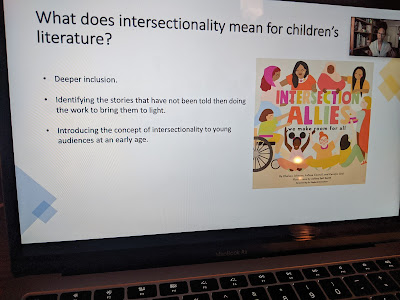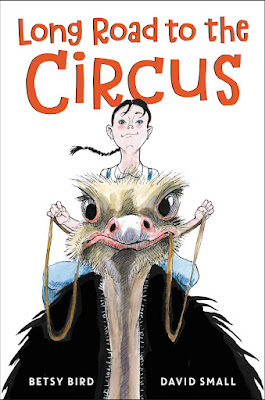Anti-Racism in Children's Literature
A couple of weeks ago I attended a virtual conference hosted by SCBWI. I've been slowly working on my own book with this lingering question in the back of my mind, "How do I make sure my story is inclusive, and authentic? And how can I promote anti-racism too?"
 |
| Amazing panel |
 |
| Very important - intersectionality in children's literature |
 |
| Meg Medina spoke about reading diverse voices. She suggested that we start by looking at our own bookshelves. |
 |
| Medina also spoke about thinking of diversity in a new way. |
Easy questions, right? Enter SCBWI. The Society of Children's Book Writers and Illustrators is an amazing organization. It connects authors and illustrators as a community to support each other through all the ins and outs of creating children's books. There are smaller geographic divisions and I can't tell you how helpful this organization has been to me in my own writing. If you are, at all, considering entering the world of children's book writing or illustrating, I highly recommend a yearly membership.
This year, due to Covid, all conferences have been virtual. I was really excited to see this conference on anti-racism pop up. The panelist's were asked to speak about a topic of their choice. It was a jam-packed conference as each speaker only had 10 minutes and their topics could fill an entire semester of a college course.
One topic I found particularly interesting was the question, "Who has the right to tell my story?" Can a white person write a protagonist who is Native American? Can a straight male write the story of a lesbian? Where are the lines drawn? One panelist referenced two sources that I offer you now. These have been great for me as I ask these same questions about the stories I am working on.
In 1998, Jacqueline Woodson wrote about this same topic for The Horn Book. It is mind blowing to me that we still ask the question about "who can write my story?" 22 years after this article was published.
Even further back, in 1992 authors Nisi Shawl and Cynthia Ward attended a writer's workshop and the topic of writing about someone from a different ethnic background than yourself came up. This spurred Shawl and Ward to write a book called Writing the Other. Now, there is also a website with many resources for writers as the consider writing from different perspectives.


Comments
Post a Comment